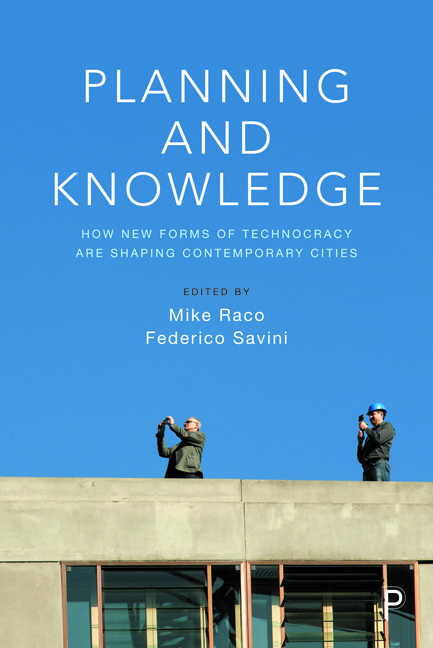Book contents
- Frontmatter
- Contents
- List of figures
- List of tables
- Notes on contributors
- Part I Conceptual framings of technocracy
- Part II Public planning and bureaucracies in contemporary urban development politics
- Part III Corporate knowledge and the land and property development sector
- Part IV Private consultants and the delivery of public policy
- Part V New constellations of actors and the management and governance of contemporary cities
- References
- Index
11 - Professional lobbying in urban planning:depoliticisation or REpoliticisation?
Published online by Cambridge University Press: 30 April 2022
- Frontmatter
- Contents
- List of figures
- List of tables
- Notes on contributors
- Part I Conceptual framings of technocracy
- Part II Public planning and bureaucracies in contemporary urban development politics
- Part III Corporate knowledge and the land and property development sector
- Part IV Private consultants and the delivery of public policy
- Part V New constellations of actors and the management and governance of contemporary cities
- References
- Index
Summary
Introduction
Lobbying has become a widespread internationalphenomenon affecting urban policymaking. It isbecoming increasingly privatised andprofessionalised, a service at the disposal ofstakeholders who can afford it. As we exemplify inthis chapter, the role of lobbying has becomecrucial even for counter-movements, in order forthem to have an impact on public developmentpolicies. This chapter argues that professionallobbying is turning out to be an important factor inthe de- and re-politicisation processes of urbandevelopment.
We describe the phenomenon of professional lobbying inurban planning in general terms. We draw on publicaffairs studies, outlining the broad spectrum oftasks of the lobbyist and identifying certainstrategies and tactics of lobbying. To question thetechnocratic logics of contemporary urbangovernance, we ask: what does theprofessionalisation of lobbying mean, and how doesit affect the planning process and the relateddecision-making process? We focus empirically on theFinnish context and especially on Helsinki. Theempirical research, semi-structured interviews withfive politicians (members of the Helsinki citycouncil) and six public affairs consultants, wasconducted during 2017. The interviewees representeda range of political backgrounds.
The case concerns the initiative to establish theGuggenheim Museum in Helsinki, promoted by a publicaffairs agency. Thereafter, we examine the potentialof professional lobbying to politicise the urbanplanning process. Politicisation has become acentral theme in the theoretical planning discussionfollowing the rise of an agonistic approach, inwhich ‘making political’ is considered a source oflegitimacy for public planning (see for example,Hillier, 2003; Mouat et al, 2013; Mäntysalo et al,2011; Pløger, 2004, see also Mouffe, 2005; 2013;Rancière, 2010.) In this chapter, we reflect on thepossible implications of professional lobbying tothe broad political processes of making decisions onspecific plans. There are a variety of ways in whichplanning can become politicised, and we try tohighlight several of them. This is imperative, since– as we argue in the concluding section –politicisation does not necessarily makedecision-making more legitimate, nor is it some sortof an end point. Rather, identifying politicisationand the variety of forms it may take represents astarting point.
- Type
- Chapter
- Information
- Planning and KnowledgeHow New Forms of Technocracy Are Shaping Contemporary Cities, pp. 141 - 156Publisher: Bristol University PressPrint publication year: 2019



